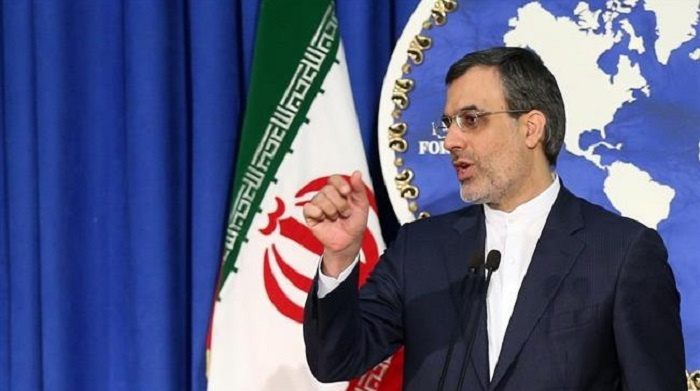Principlists Put MFA on Defensive over JCPOA’s Assumed Economic Failure

The implementation of the nuclear deal hammered out between Iran and world powers has turned into a ticking time bomb, as Iran’s ministry of foreign affairs is busy silencing its domestic critics, whose partisan interests are at stake but seem to have a louder voice than the official organs.
Iran has been hurdling since mid-January for a comeback to the world economy in the so far vain hope that the agreement could resolve other differences with the West, including, but not limited to, its missile defense program. Sluggish as the favorable economic reunion is going, the Rouhani administration is losing much-needed time to mend its stagflated economy. In the meantime, Tehran is constantly challenged domestically for investing too heavily on the deal.
Early on Sunday, a principlist website, Jahan News, reported that the EU’s foreign policy chief, Federica Mogherini, has handed Iran’s Zarif a letter, jointly written by the foreign ministers of the P5+1 group, saying the financial and banking obstacles on Iran’s way to return to the global economy do not concern them as they have undertaken to fulfill commitments they made under the JCPOA. Within hours, Iran’s foreign ministry spokesman, Hossein Jaberi Ansari, dismissed the report, saying some Iranian media and politicians are serving as foreigners’ guides on how to work with Tehran. “Unfortunately, the inability and frustration of some individuals and media in Iran has peaked so high that they forge news stories,” he said.
Later on Sunday, BBC Persian reported that the EU’s lead external action spokesperson, Catherine Ray, had also denied the submission of any confidential letter from the western side. Denial on both sides brings up the question what lies behind such lies, as they have nothing to do with either ethics or journalistic missions, in the words of Hassan Beheshtipour, an Iranian expert on international relations. “This is even in contrast with solemn political activities and inter-partisan competition,” he told Iranian Diplomacy.
Partisan differences are the main motive behind such miserable forgeries. However, Mr. Beheshtipour says some are of the belief that the nuclear deal should be questioned in every possible way because they consider it a betrayal to the Iranian nation. “They fail to take into account the different aspects of the JCPOA and focus solely on economy and trade, repeatedly saying the deal should help tackle Iran’s banking problems,” he said. Enumerating inflation, unemployment, bribery and corruption as Iran’s main economic issues, he says these are structural problems the country has been suffering from since the Shah’s era, nearly four decades ago. He further reiterates that the world has reformed its banking system after the great recession of the capitalist system in 2008 and that since Iran was then dealing with the sanction, it could not align itself with the international banking system and should now do so step by step.
Iran’s foreign ministry is also partly to blame. He said, “It should work harder to illuminate the JCPOA for public opinion. It seems that it has not been analyzed, as it should, for public opinion and in particular for the elite. To do so, we need academic seminars away from a poisonous atmosphere as well as more essays and books written on the issue. The Ministry must shed light on such a significant agreement for public opinion as there are several doubts, which have accurate answers kept due to certain considerations.” The administration’s media arms have not provided the public with updated convincing explanations, which is exemplified perhaps by President Rouhani’s failure to show up on TV and speak directly with the people in the past six months.
On Monday, during Jaberi Ansari’s weekly presser, a reporter called the nuclear deal a “complete loss” and asked why the administration does not stop it, when the spokesperson sarcastically replied, “the foreign ministry does not follow your orders, sir”. He went on elaborating that the foreign ministry is a part of governmental institutions and has held no talks without governmental coordination, neither undertaken any JCPOA follow-up stages without building a national consensus and proceeding on the legal course in governmental and national institutions.
Beheshtipour says the opponents of the nuclear deal have blocked every way out of the impasse. “With any measure, they would say it will bring dependence on global capitalism. If foreign investment is to be attracted, again they would say it will cause enemy infiltration. We should sort it out, whether foreign investment should take place or not. What are the conditions, if we seek foreign investment? These are the important issues that require discussion, not the publication of a forged letter.”

